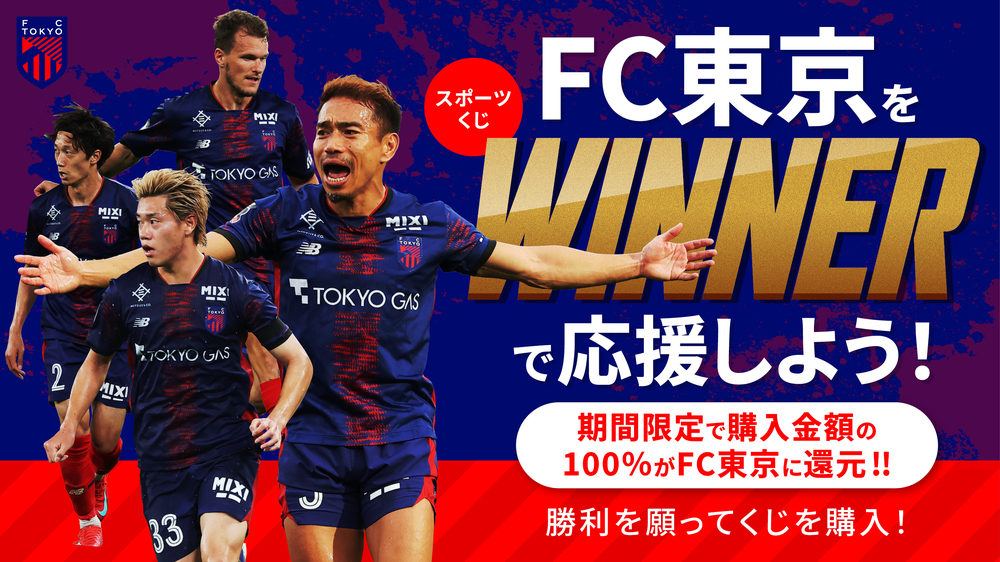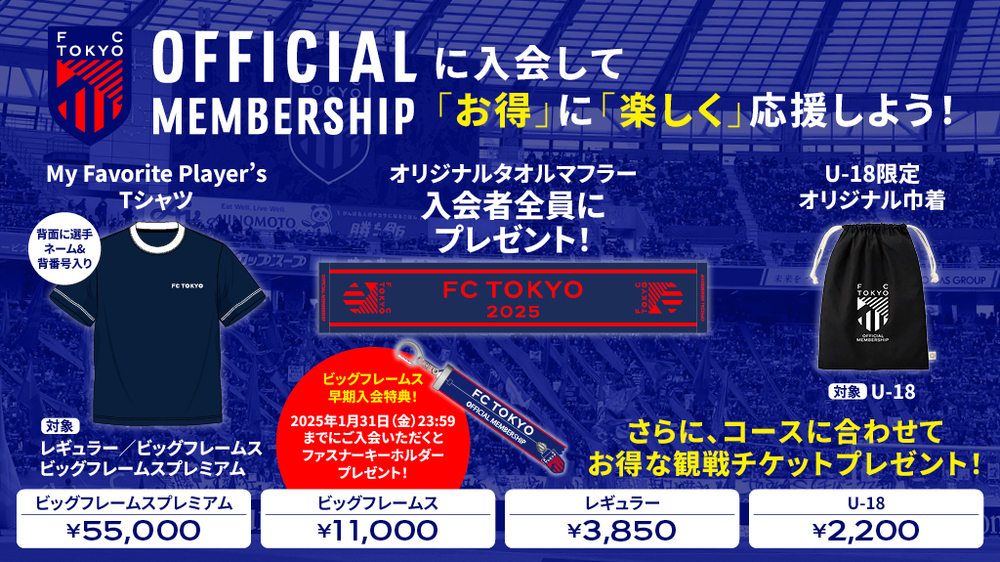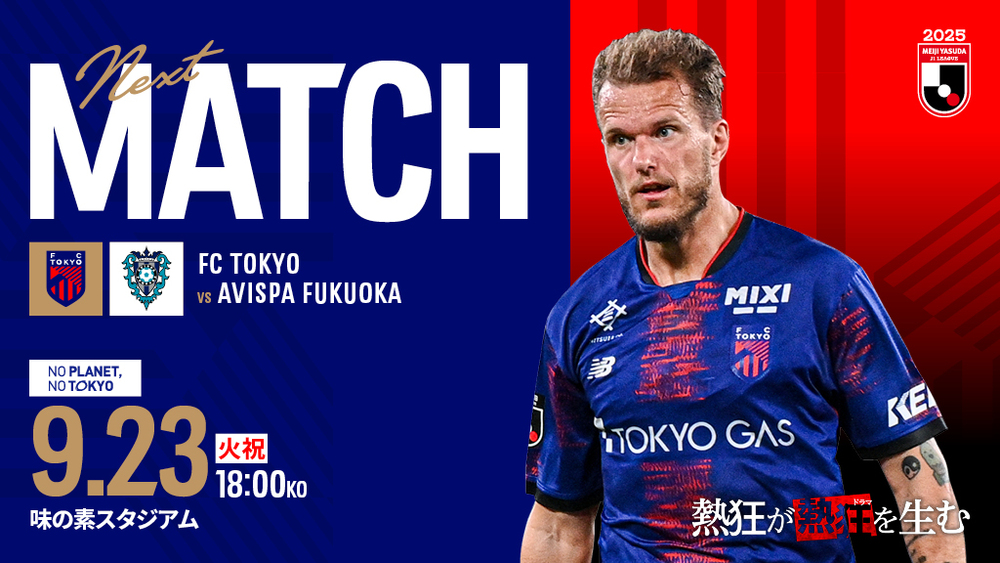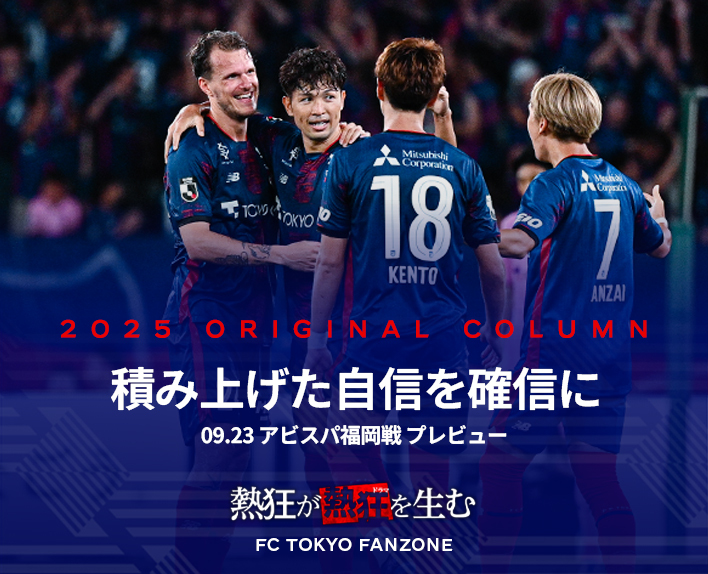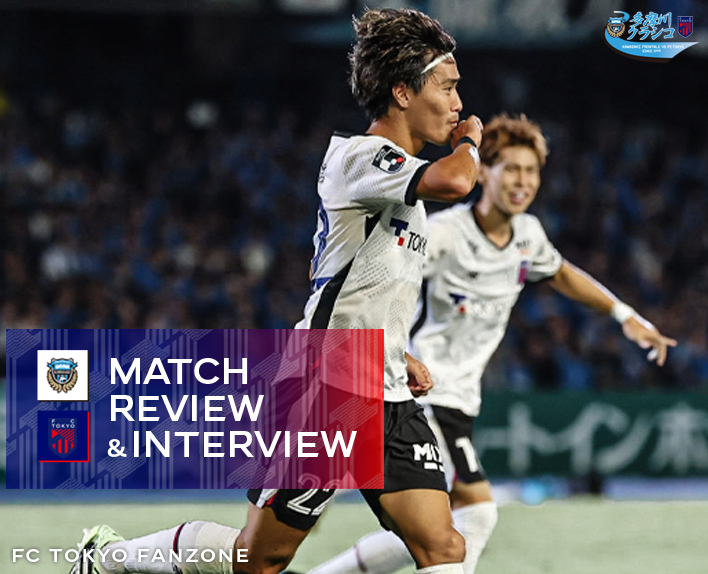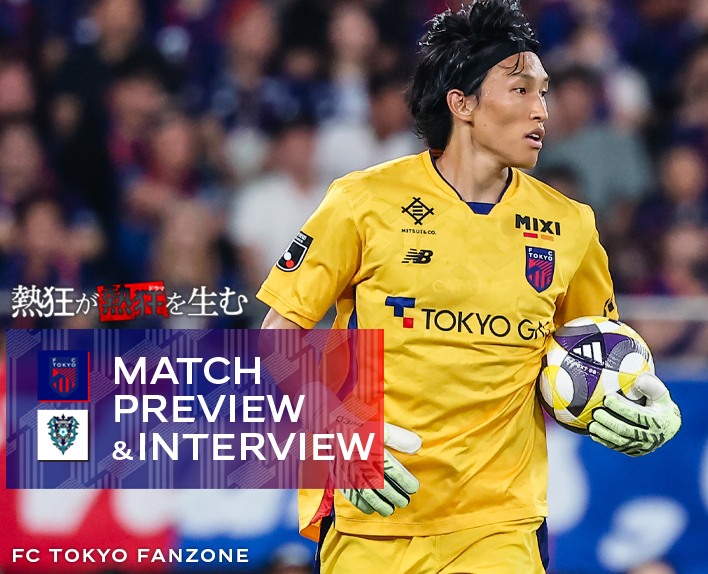Tokyo has gained a definite sense of confidence from these two matches.
In Sec. 29 against Tokyo Verdy, the team calmly assessed the situation when the opponent shifted their weight forward, and Motoki NAGAKURA scored with a long ball behind the defense. Although they did not dominate from the start, they seized the momentum with a timely strike and held on to the path to victory until the end.
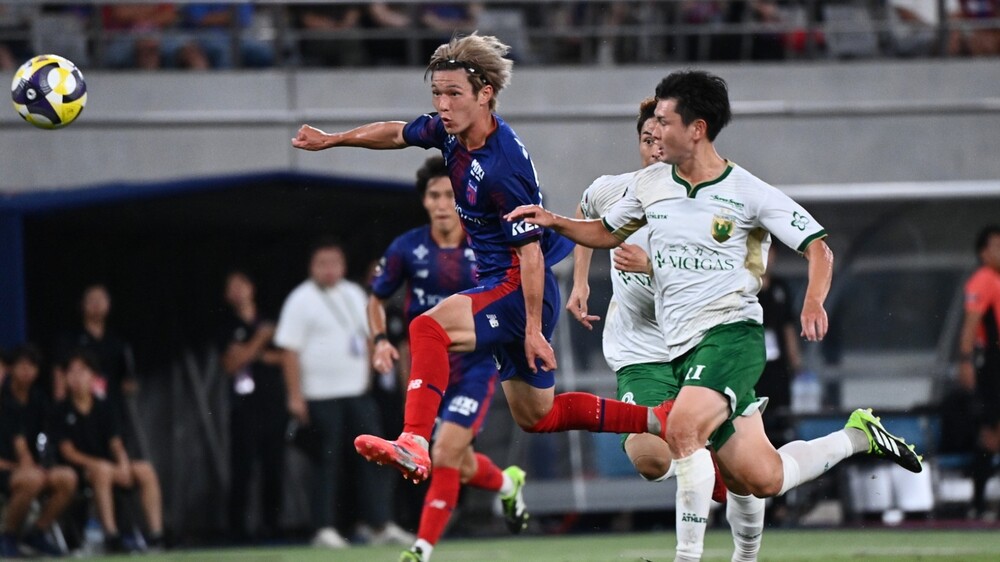
In the following match against Kawasaki Frontale, Tokyo calmly moved the ball against the opponent’s defensive block formation, shaking them and finding spaces to build their attack. While neutralizing the opponent’s strengths, they thoroughly pursued their own objectives.
Although Keita ENDO’s opening goal was canceled with VAR support, the entire sequence leading to Marcos GUILHERME’s goal was not a style of play relying solely on their own strengths, but rather one that understood Kawasaki’s characteristics and tactical style and turned them to their advantage.
What is common throughout these two matches is that, after accepting the opponent's style of play, they drew it into their own form. Additionally, with calm actions and reactions to the phenomena occurring on the pitch, they are able to play with confidence. The consecutive wins are not a coincidence but can be said to be an inevitable result of what they have built up through hardship.
Confidence and Inevitability Brought by Consecutive Wins
Tokyo's traditional weapons are fast vertical attacks and wing attacks that leverage the individual strengths of each player, but by integrating a consciousness of "connecting," they have enabled diverse expressions according to the situation.
In the match against Tokyo Verdy, facing an opponent applying pressure from the front, Tokyo used long balls at the right moments, sending the ball deep into the opponent's territory, breaking the opponent's momentum and forcing them to follow Tokyo's direction, thereby exhausting their stamina.
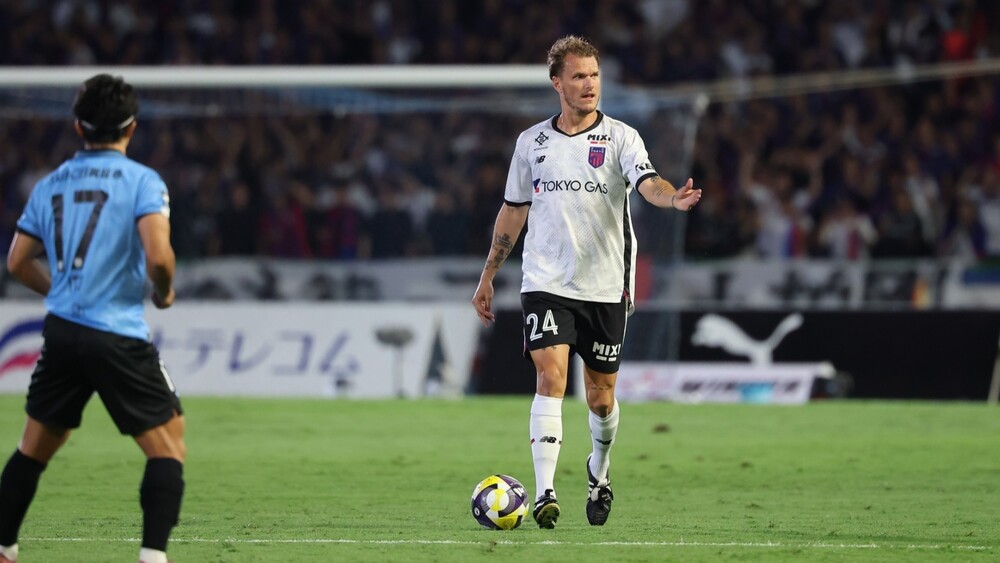
On the other hand, in the match against Kawasaki, the opponent was drawn into the build-up from the defensive line, including the goalkeeper and defensive midfielders, and the play developed as players and the ball skillfully interacted in the open spaces, overcoming the opponent’s pressing line one row at a time. Although the attacking styles differed in both matches, they shared the commonality of being able to “accurately choose how to build attacks by reading the situation.”
The words spoken by head coach Rikizo MATSUHASHI at the post-match press conference, "Good offense leads to good defense," are proof of the team’s desire to accelerate its progress. With tactical insight and experience gained from reading the opponent, a virtuous cycle between offense and defense is bound to naturally emerge.
At the core of this positive cycle lies the thorough fulfillment of individual roles and the linkage as an organization. In both offense and defense, the balance of the entire team has been achieved by all 11 players on the pitch fulfilling their respective roles. Instead of relying on someone else, everyone understands their own role and keeps running. This sense of unity is reflected on the pitch.
Towards the first 3 consecutive wins of the season
This week, the opponent at Ajinomoto Stadium is Avispa Fukuoka. The direct confrontation with a team tied at 37 points is an important match in aiming for the top positions.
In the first half of the league, we struggled against Fukuoka's solid defense and sharp counterattacks, conceding a goal in added time from a corner kick sequence. We couldn't bring out the team's strengths and suffered a 0-1 defeat.
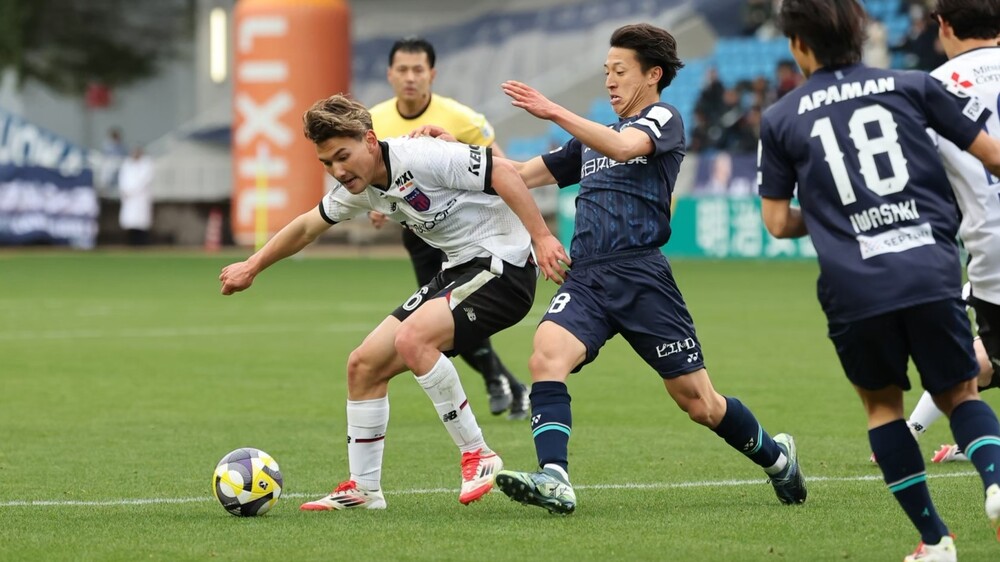
Fukuoka is currently on a three-game losing streak in the league. In the previous match against Yokohama F.Marinos, they adopted a four-back formation instead of their usual three-back system this season, but they were unable to connect long balls effectively to finish plays, and their defense was exploited, conceding two goals. Although they created several chances through side attacks late in the game, they could not score. They sought a breakthrough through the system change but were unable to execute the intended game plan.
However, they are by no means an opponent to be underestimated. Based on solid defense, their ability to capitalize on a single chance remains intact. Special attention must be paid to set plays initiated by the precise free kicks of player Meiko and the attacking sense of player Miki, who leads the team with 5 goals.
Starting with this match against Fukuoka, Tokyo will face consecutive matches against Yokohama FM and Shimizu S-Pulse, teams close in the standings. If they can steadily accumulate points here, it will not just be a simple winning streak but a stepping stone toward advancing to the top ranks.
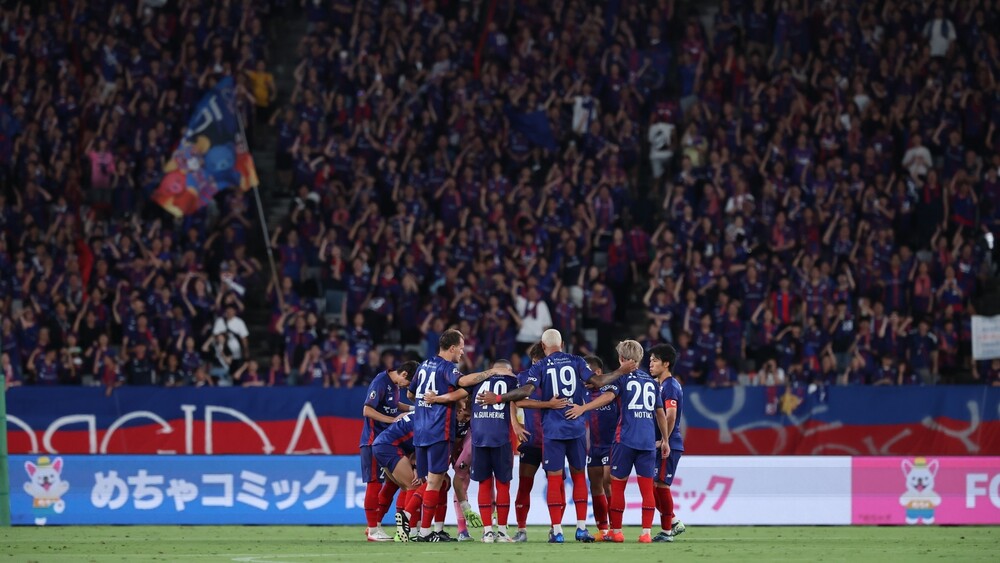
After the Kawasaki match, Coach Matsuhashi told the players, "(Depending on the second half) we could have achieved a better score." Tokyo now has an attitude of continuous growth without being satisfied. That is why this timing makes the “three consecutive matches” — which they have yet to reach this season — extremely important. By accumulating 3 points, confidence will turn into conviction.
To prove that this winning streak is not a coincidence but an inevitability, the match against Fukuoka with just two days' rest will likely showcase Tokyo's overall strength and evolution.
